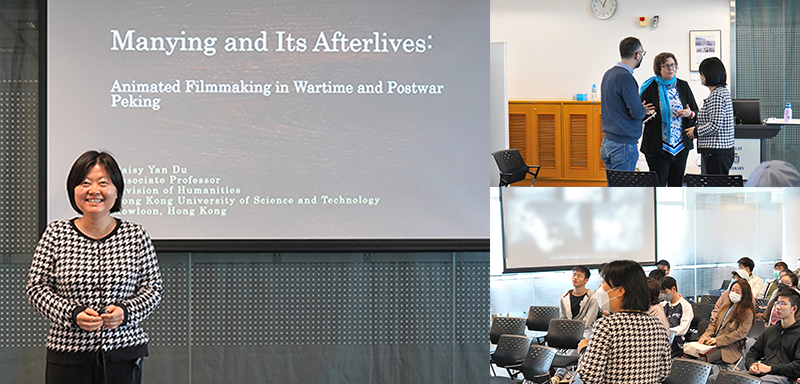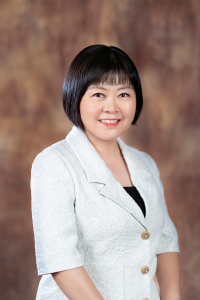About the Talk
In this talk, Professor Du will share on her latest research about the animated film-making activities of the North China Film Company (a branch of the Manchukuo Film Association (株式會社滿洲映畫協會) also known as Manying (滿映) between 1937–45), which was located in wartime Peking.
Focusing on a Chinese cartoonist and animator named Liang Jin (?–1972), as well as a few Japanese animators at the North China Film Company, she will show that although Manying’s animated filmmaking followed a philosophy of "territorialization" and localization, it still made a fantasy world distanced from the wartime realities of China and Japan. This enabled the animations to transcend wartime political controls, persist through a tumultuous regime change, and assume multiple afterlives as "ghosts" animating Chinese socialist cinema, despite institutional efforts to erase them from the history of Chinese animation and live-action filmmaking.
Registration: https://lbcube.hkust.edu.hk/ce/event/9298
Notes:
- This is a recognized event in the "Self-directed Experience" component of CORE1905: Behavioral Foundations of University Education: Habits, Mindsets, and Wellness. You need to attend the event in full to get 1.0 hour.
- No photography by the audience or any recording of this talk and its examples is allowed.

About the Speaker

Professor Du received her PhD from the University of Wisconsin, Madison in 2012 and joined the faculty of the Division of Humanities at the Hong Kong University of Science and Technology in 2013. Her book, Animated Encounters: Transnational Movements of Chinese Animation 1940s-1970s, (2019) is available in the Library in both paper and e-book format. She is currently working on two other books tentatively titled Plasmatic Empire: Animated Filmmaking in the Manchukuo Film Association (1937-1945) and Suspended Animation.
She is interested in animation, film, media, feminist film criticism, critical race/ethnicity studies, transnational film studies, modern Chinese literature and visual culture, women/children/animal/machine/technology, travel/migration/diaspora, and modernity/modernism studies.
Recently she started a new research project on women animators in China and is editing a few volumes about animation and new media. She is also the founder of the Association for Chinese Animation Studies, which is dedicated to introducing and promoting Chinese animation to the English-speaking world.